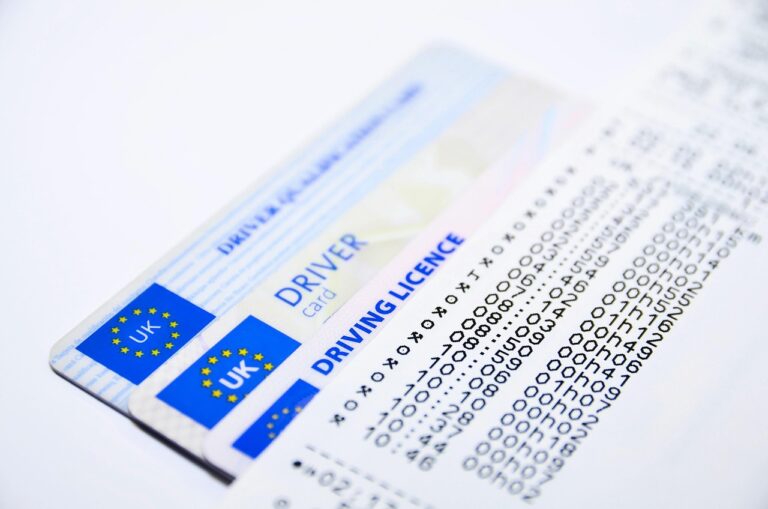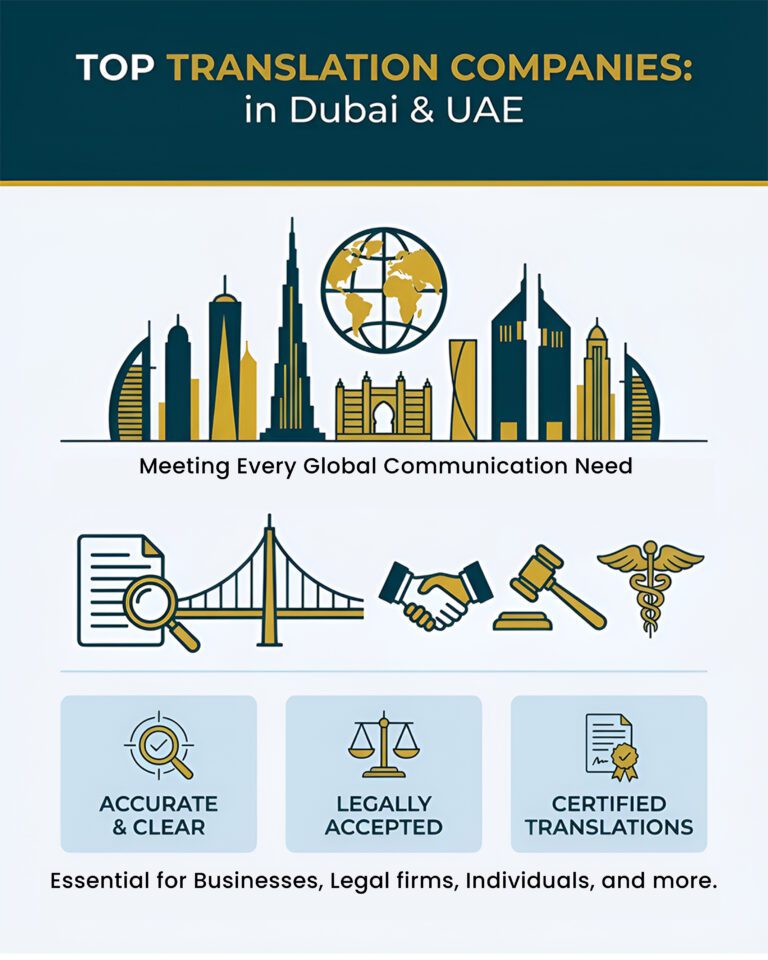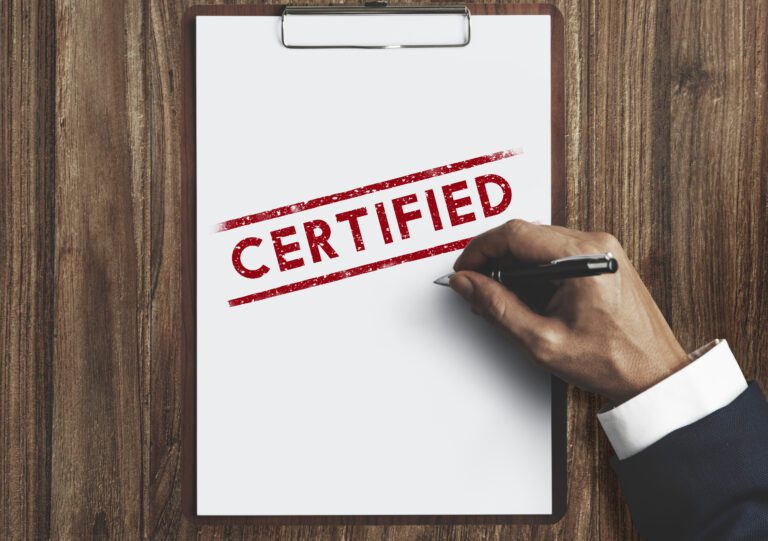What is Legal Translation?
Legal translation refers to the precise conversion of legal documents from one language to another while maintaining their original meaning, legal validity, and compliance with jurisdictional requirements.

In the UAE, legal translation is a highly regulated field due to the country’s strict adherence to Arabic as the official language for courts, government entities, and legal proceedings.
- What is Legal Translation?
- Key Aspects of Legal Translation in the UAE
- Importance and Common Use Cases
- Common Scenarios Requiring Legal Translation
- Risks of Inaccurate Translations
- UAE Legal Translation Regulations and Requirements
- Types of Documents Requiring Legal Translation in the UAE
- Certification, Notarization, and Attestation Process
- Arabic Language Requirements for Courts and Authorities
- Recent Legal Developments and Updates
- Choosing a Certified Legal Translation Service Provider
- Frequently Asked Questions
Key Aspects of Legal Translation in the UAE
Certified vs. General Translation
- Certified Legal Translation: This is performed by Ministry of Justice (Moj)- accredited translators and includes an official stamp and signature for legal validity.
- General Translation: Lacks legal recognition and cannot be used for official submissions.
- Professional Standards:
- Must adhere to UAE Federal Laws, including Federal Law No. 6 of 2012 and Federal Decree-Law No. 22 of 2022.
- Requires absolute accuracy—errors can lead to legal consequences or document rejection.
Importance and Common Use Cases
Legal translation is mandatory for any document submitted to UAE courts, government bodies, or businesses. Inaccurate translations can lead to delays, legal disputes, or rejection of applications.
Common Scenarios Requiring Legal Translation
- Court & Litigation Documents:
- Statements of claim, defence memoranda, judgments.
- Personal & Civil Documents:
- Birth/marriage/death certificates, academic diplomas, and power of attorney.
- Commercial & Business Documents:
- Contracts, MOUS, financial reports, and business licenses.
- Immigration & Visa Documents:
- Passports, residency permits, and good conduct certificates.
Risks of Inaccurate Translations
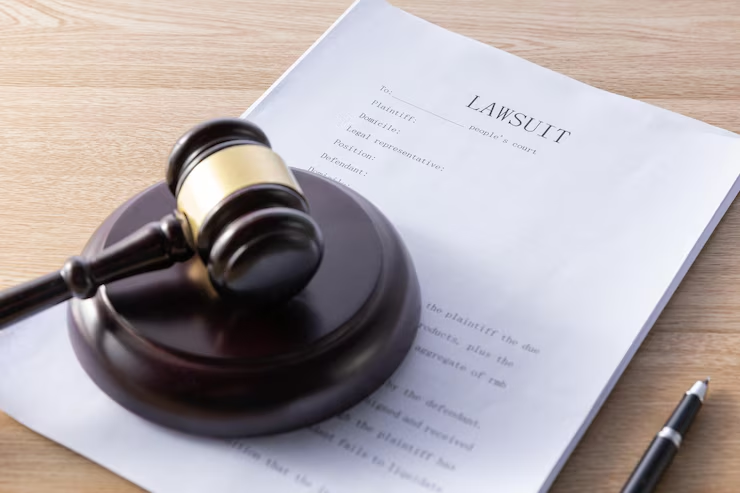
- Legal invalidity of documents.
- Court rejection of filings.
- Financial penalties or delays in processing.
UAE Legal Translation Regulations and Requirements
Key Federal Laws Governing Legal Translation
The UAE has strict regulations ensuring accuracy and authenticity in legal translations:
- Federal Law No. 6 of 2012 regulates translation and interpretation services.
- Federal Decree-Law No. 22 of 2022: Mandates accredited translators and licensed translation houses.
- Civil Procedure Code (Article 48): Requires Arabic translations for foreign documents submitted in court.
Certification Requirements for Translators
To provide certified legal translations in the UAE, translators must
- Hold Ministry of Justice (Moj) accreditation.
- Pass language proficiency and legal knowledge tests.
- Undergo continuous professional development.
Translator Qualifications and Accreditation
Required Expertise:
- Legal & linguistic proficiency in both source and target languages.
- Specialization in contracts, litigation, or corporate law.
How to Verify Credentials:
- Check the Moj’s official registry.
- Look for ATA/ISO certifications for added credibility.
Types of Documents Requiring Legal Translation in the UAE
Litigation and Court Documents
- Statements of claim, judgments, and evidence exhibits.
- Must follow court formatting rules.
Personal and Civil Documents
- Birth certificates, marriage contracts, and power of attorney.
- Requires attestation after translation.
Commercial and Business Documents
- Contracts, MOAS, and financial statements.
- Ensures legal enforceability in UAE courts.
Other Official Documents
- Bank statements (numeric-only exemptions under Circular No. 8/2023).
- Patents, trademarks, import/export permits.
Certification, Notarization, and Attestation Process
Step-by-Step Certification Process
- Submit original documents to a certified translator.
- Translation, proofreading, and legal review.
- Notarization by a UAE notary public.
- Attestation by the Mofa and relevant embassies.
Arabic Language Requirements for Courts and Authorities
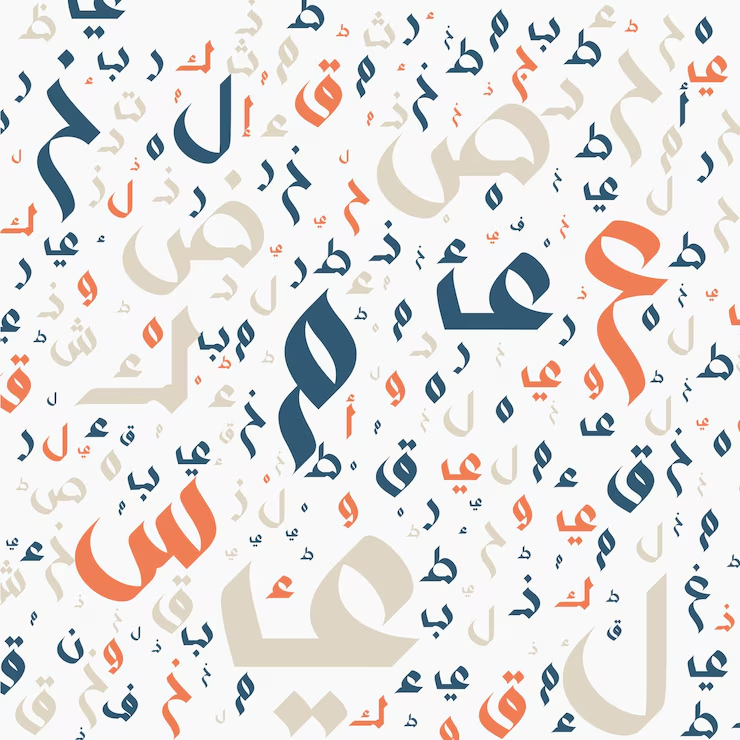
- Article 7, UAE Constitution: Arabic is the official language.
- Civil Procedure Code (Article 48): Foreign documents must be translated for court use.
- Exceptions:
- Numeric-only bank statements (Circular No. 8/2023).
- Courts may allow temporary English submissions in some cases.
Recent Legal Developments and Updates
Circular No. 8 of 2023
- Exempts numeric-only bank statements/invoices from full translation.
- Courts retain discretion to request translations if needed.
Federal Decree-Law No. 22 of 2022
- Stricter rules for translation houses and registered translators.
- Penalties for non-compliance.
Choosing a Certified Legal Translation Service Provider
Choosing the right translation services in the UAE makes or breaks your business goals. It’s important to make sure that translation services meet the UAE legal requirements. Here are few ways to check the service provider
Verifying Accreditation
- Check the Moj registry for certified translators.
- Look for ATA/ISO certifications.
Assessing Expertise
- Specialisation in legal, financial, or technical fields.
- Case studies of past translations.
Cost & Turnaround Time
- Per-word or per-page pricing (AED 50–150 per page).
- Express services (24–48 hours) are available.
Frequently Asked Questions
Have a project in mind, contact us for an instant quote!
Get in touch with our team and receive your free quote today. We’re ready to help you with any legal translation needs in the UAE and beyond.
Get Your Quote